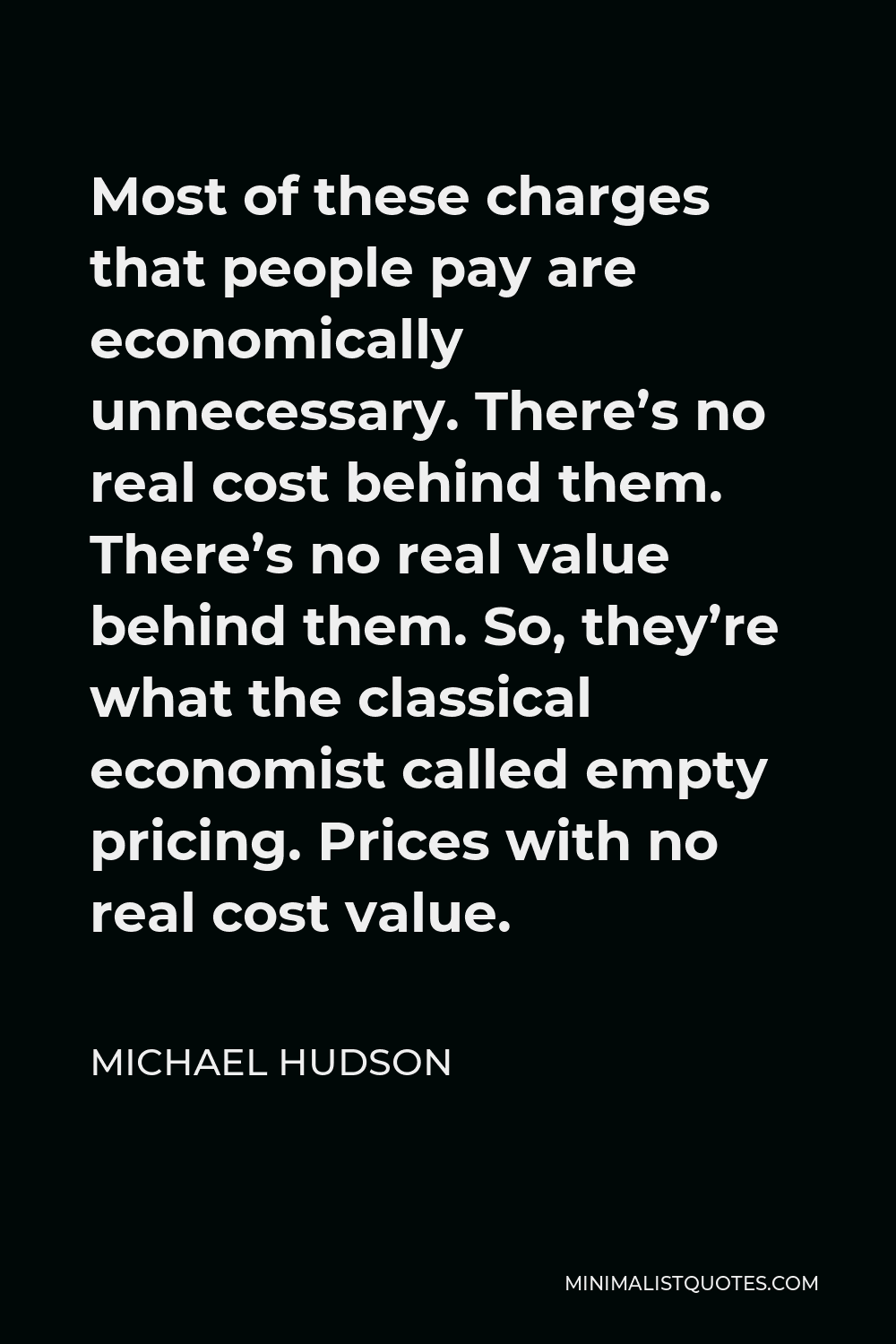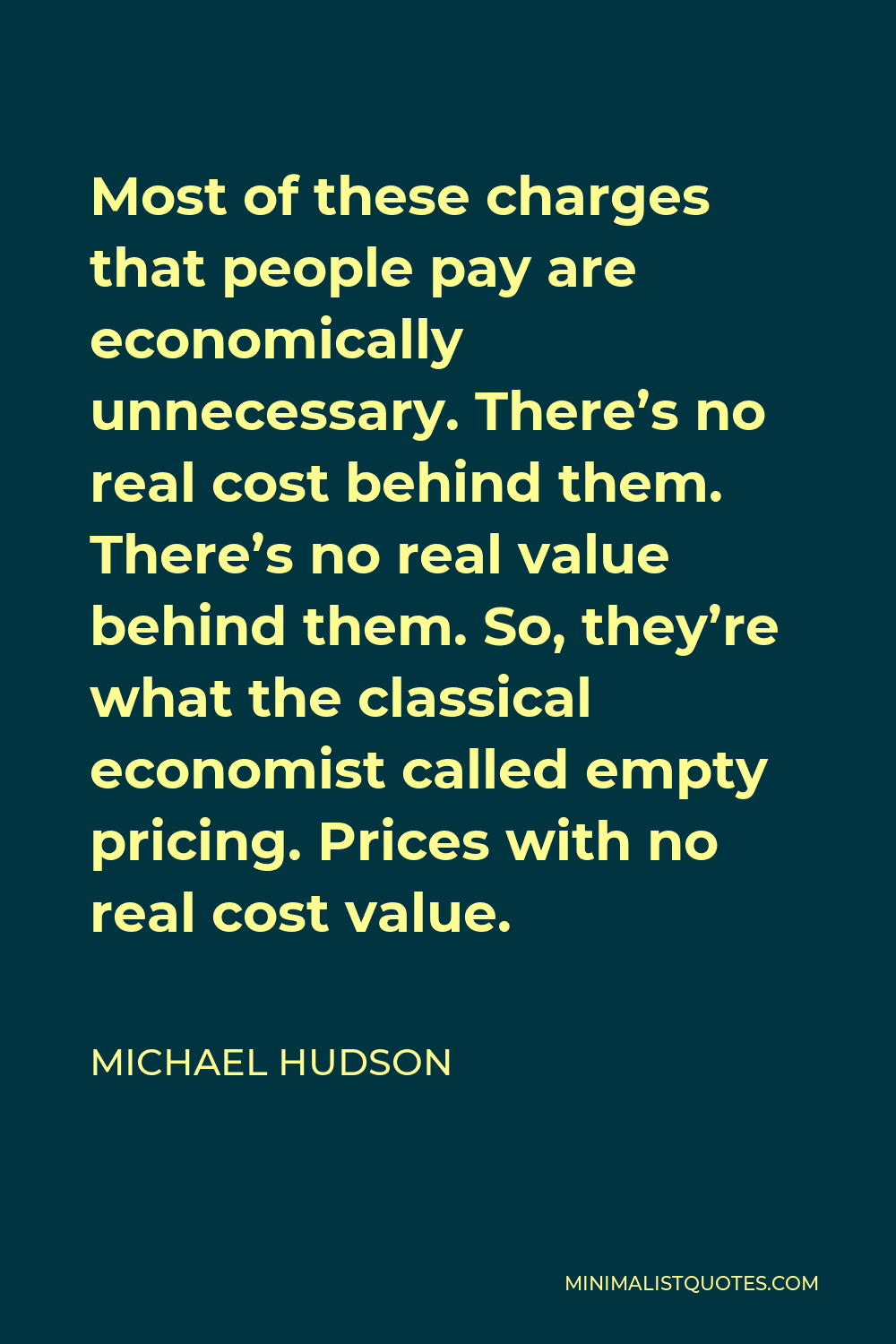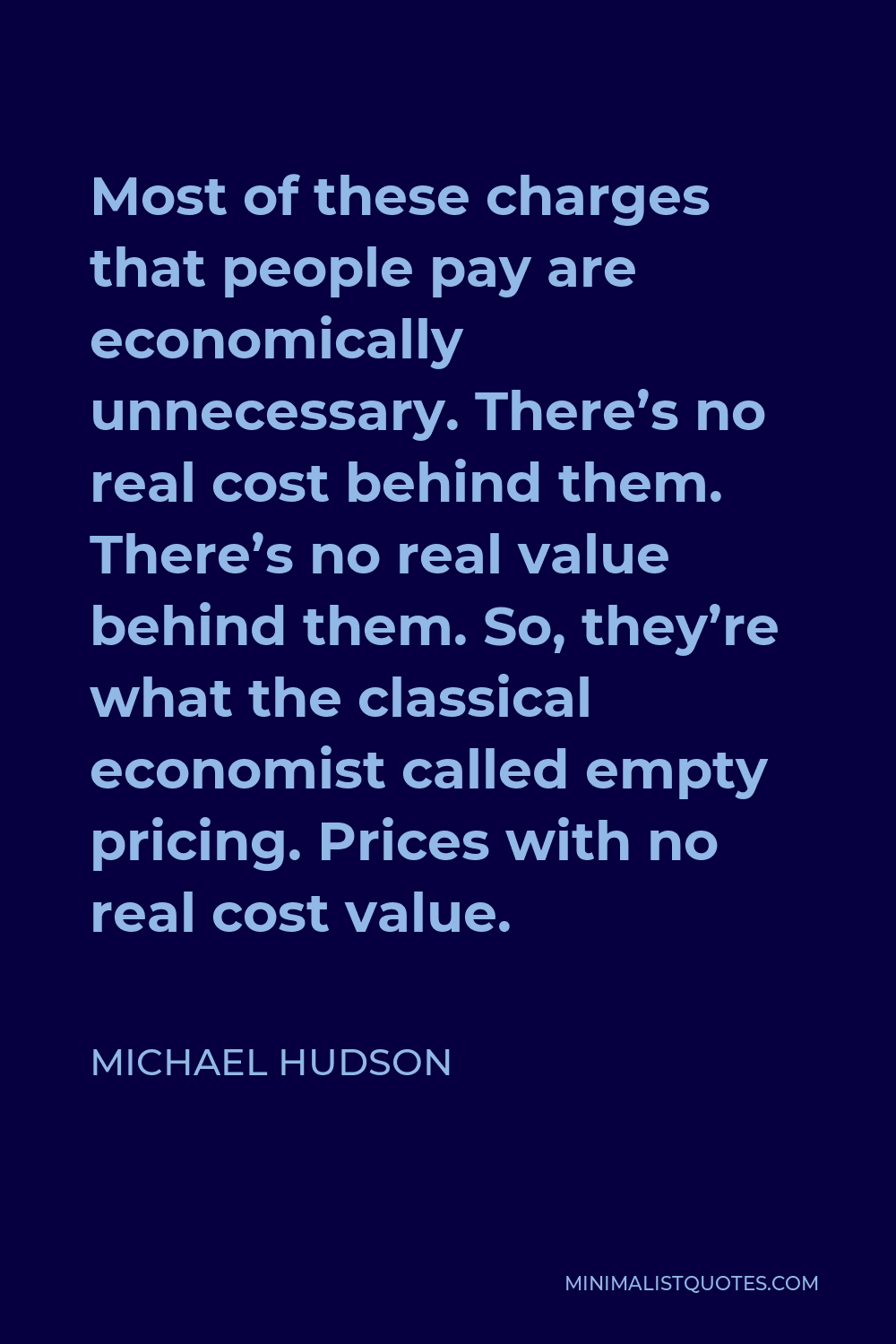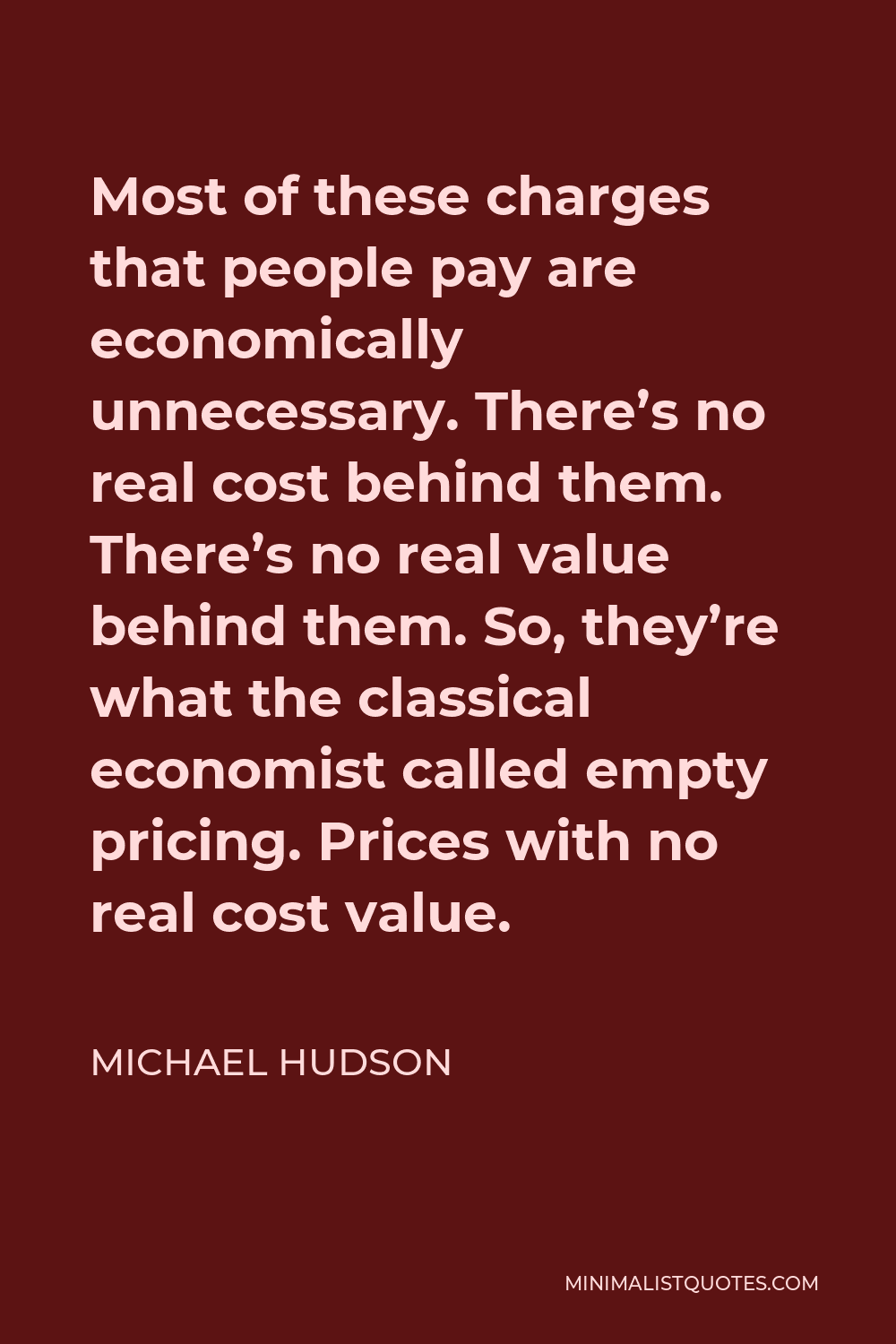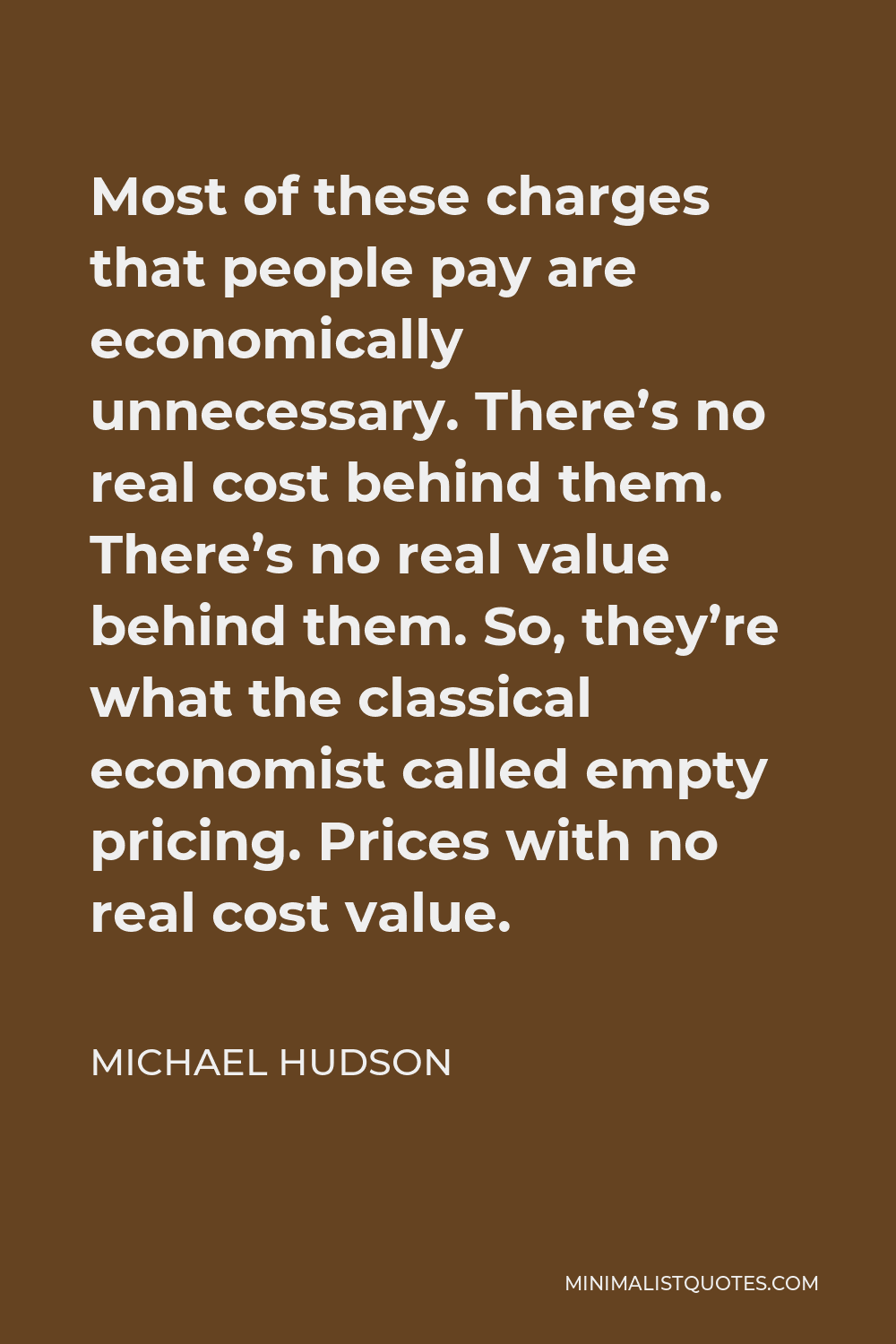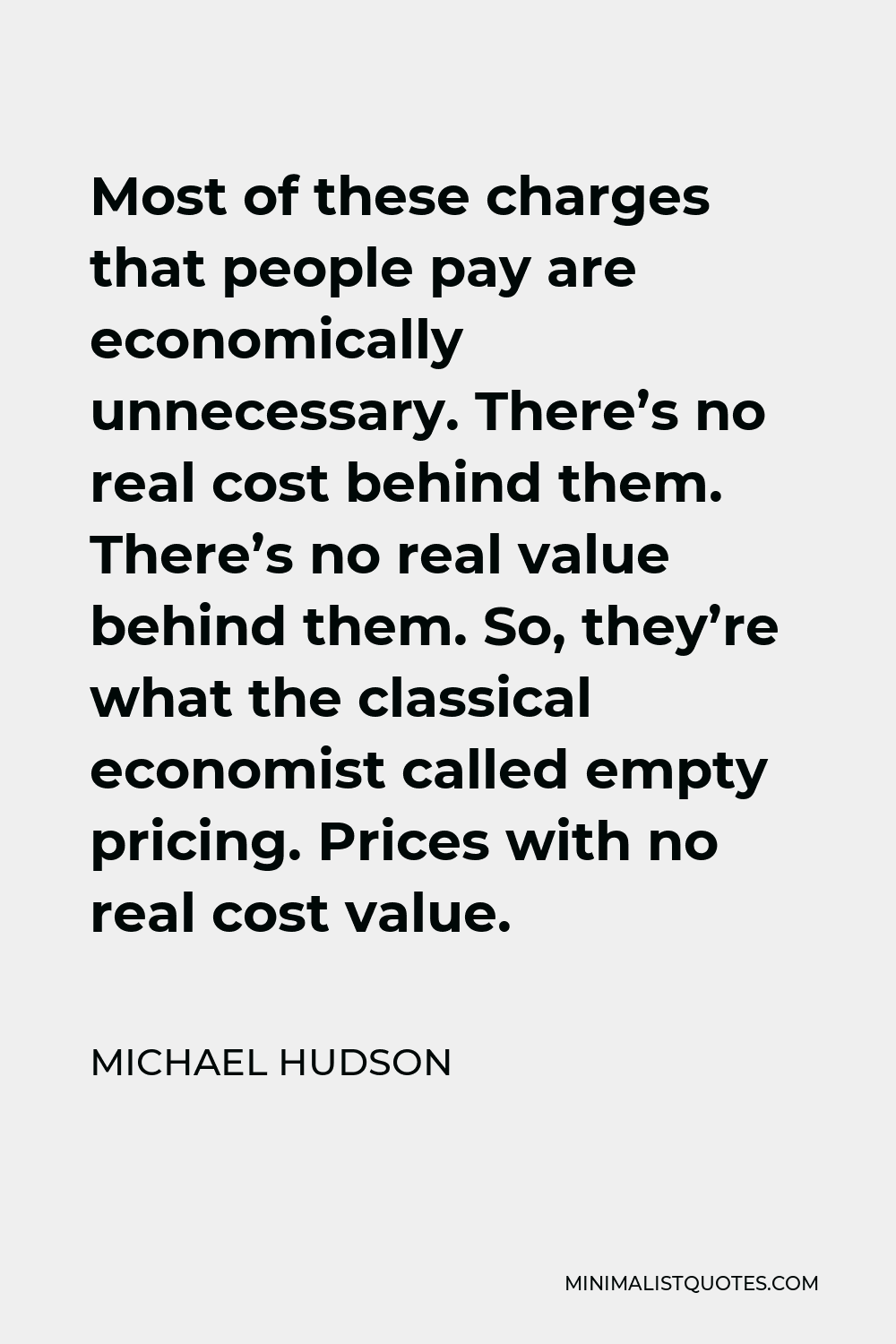The reason is that every recovery since 1945 has begun with a higher, and higher level of debt. The debt is so high now, that since 2008 we’ve been in what I call, debt deflation.
MICHAEL HUDSONMost of these charges that people pay are economically unnecessary. There’s no real cost behind them. There’s no real value behind them. So, they’re what the classical economist called empty pricing. Prices with no real cost value.
More Michael Hudson Quotes
-






-





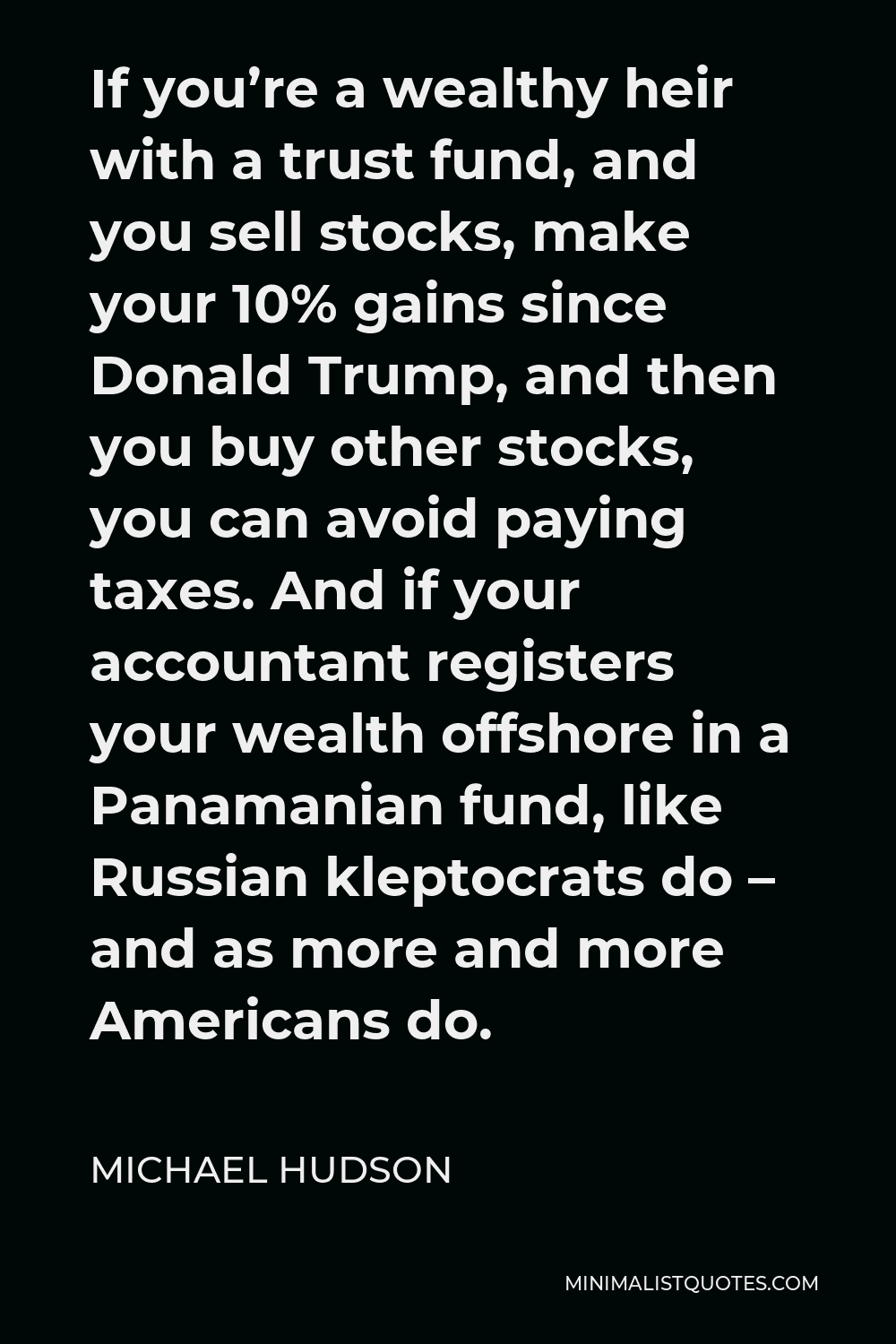
If you’re a wealthy heir with a trust fund, and you sell stocks, make your 10% gains since Donald Trump, and then you buy other stocks, you can avoid paying taxes. And if your accountant registers your wealth offshore in a Panamanian fund, like Russian kleptocrats do – and as more and more Americans do.
MICHAEL HUDSON -





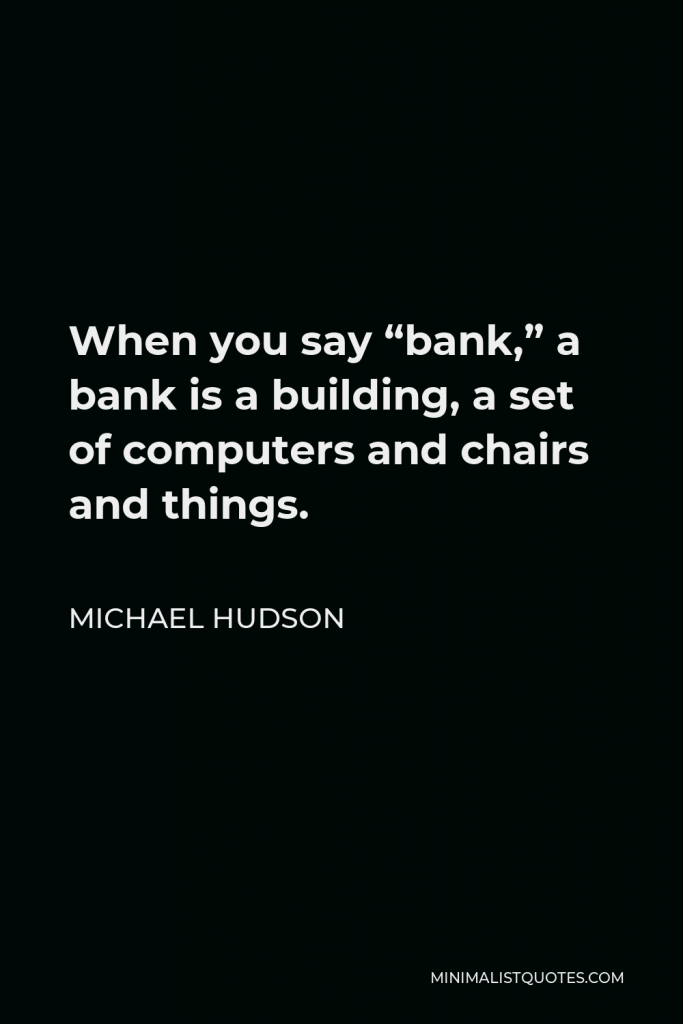

When you say “bank,” a bank is a building, a set of computers and chairs and things.
MICHAEL HUDSON -





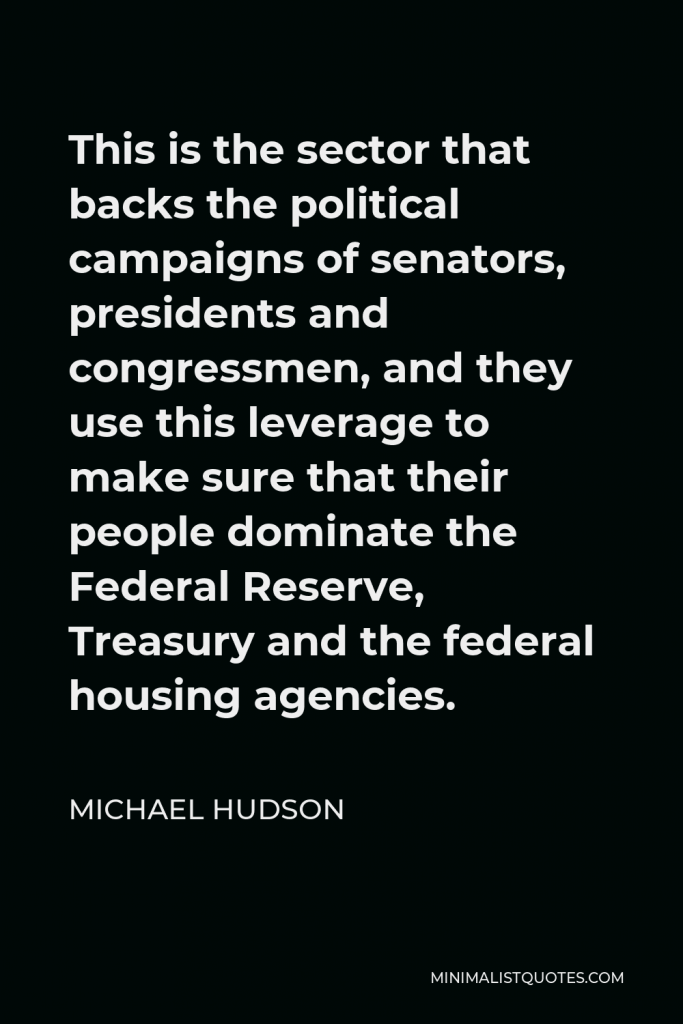

This is the sector that backs the political campaigns of senators, presidents and congressmen, and they use this leverage to make sure that their people dominate the Federal Reserve, Treasury and the federal housing agencies.
MICHAEL HUDSON -





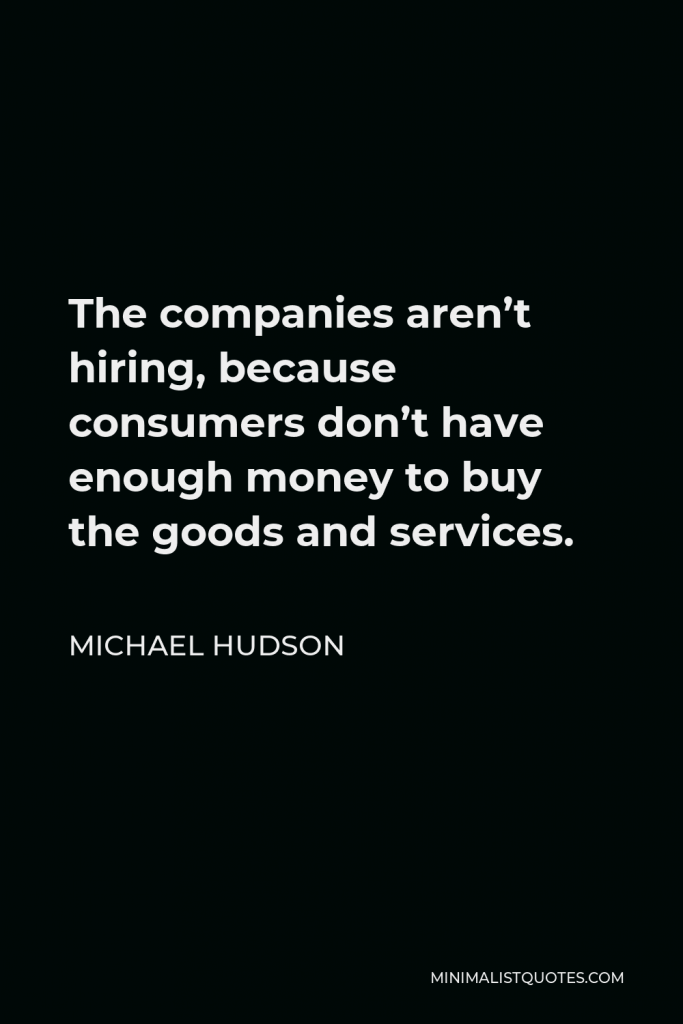

The companies aren’t hiring, because consumers don’t have enough money to buy the goods and services.
MICHAEL HUDSON -





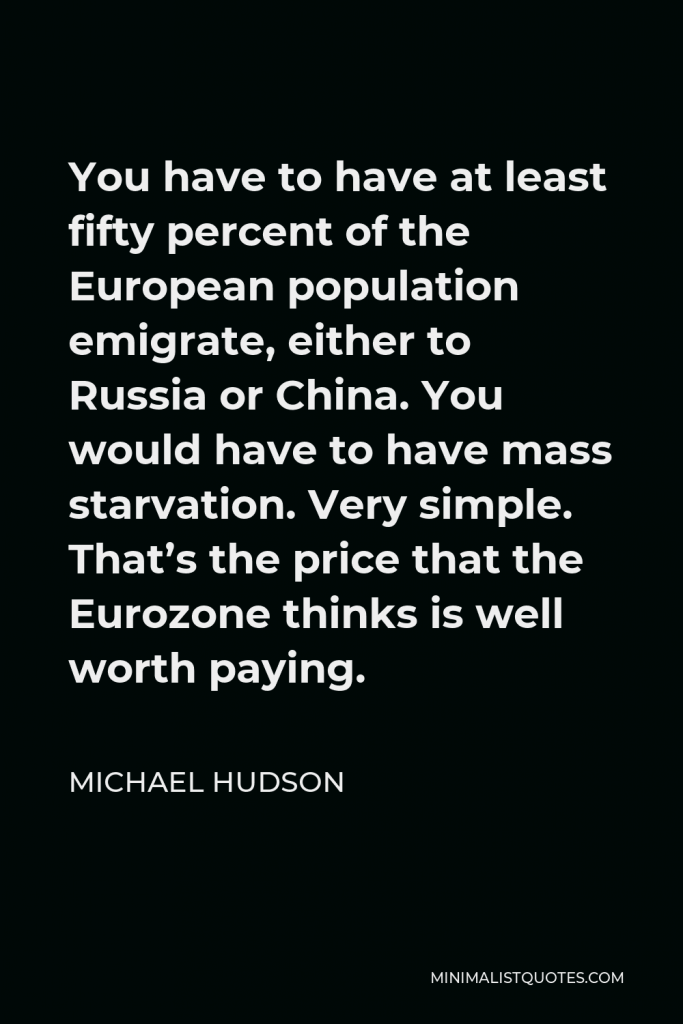

You have to have at least fifty percent of the European population emigrate, either to Russia or China. You would have to have mass starvation. Very simple. That’s the price that the Eurozone thinks is well worth paying.
MICHAEL HUDSON -





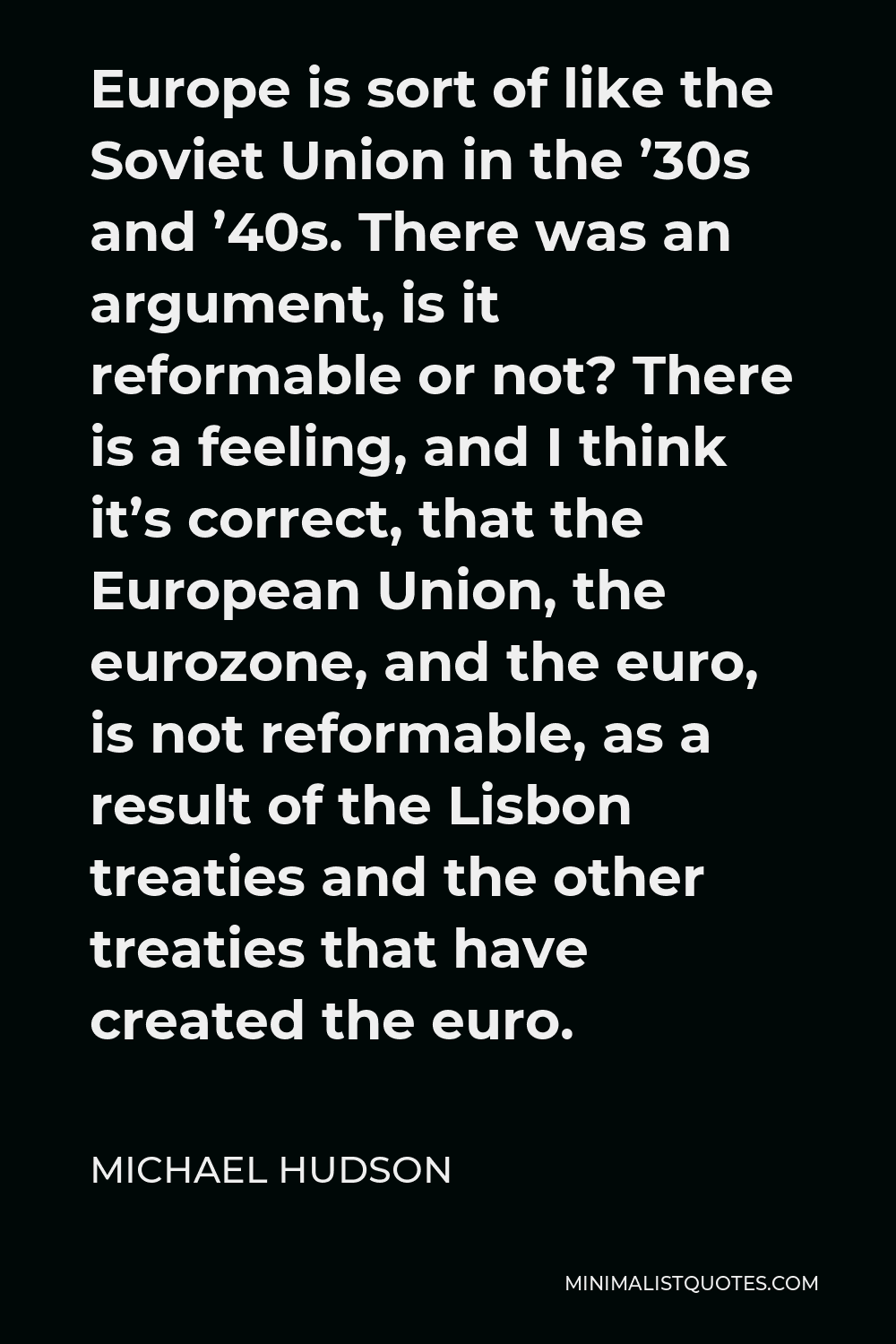
Europe is sort of like the Soviet Union in the ’30s and ’40s. There was an argument, is it reformable or not? There is a feeling, and I think it’s correct, that the European Union, the eurozone, and the euro, is not reformable, as a result of the Lisbon treaties and the other treaties that have created the euro.
MICHAEL HUDSON -





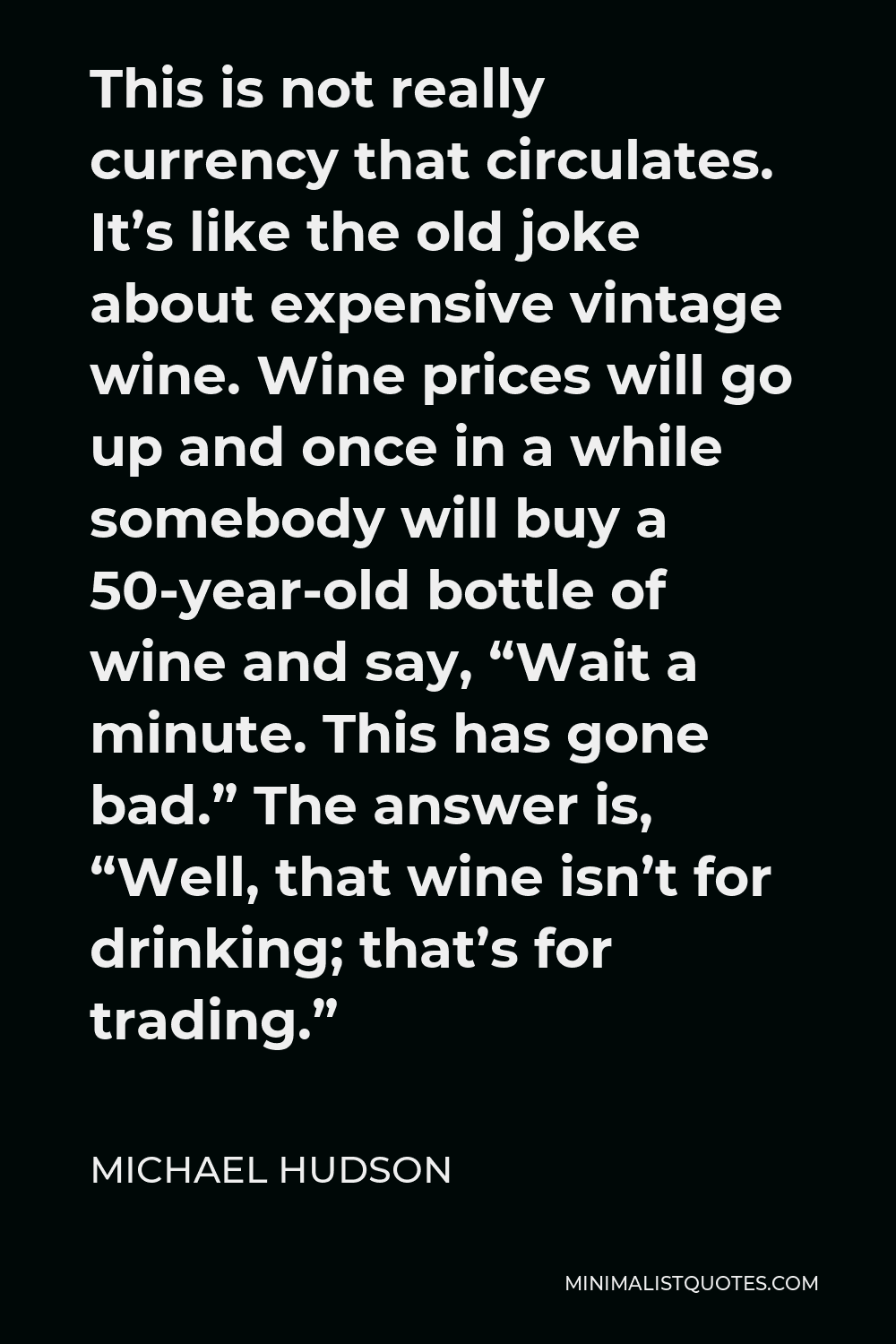
This is not really currency that circulates. It’s like the old joke about expensive vintage wine. Wine prices will go up and once in a while somebody will buy a 50-year-old bottle of wine and say, “Wait a minute. This has gone bad.” The answer is, “Well, that wine isn’t for drinking; that’s for trading.”
MICHAEL HUDSON -





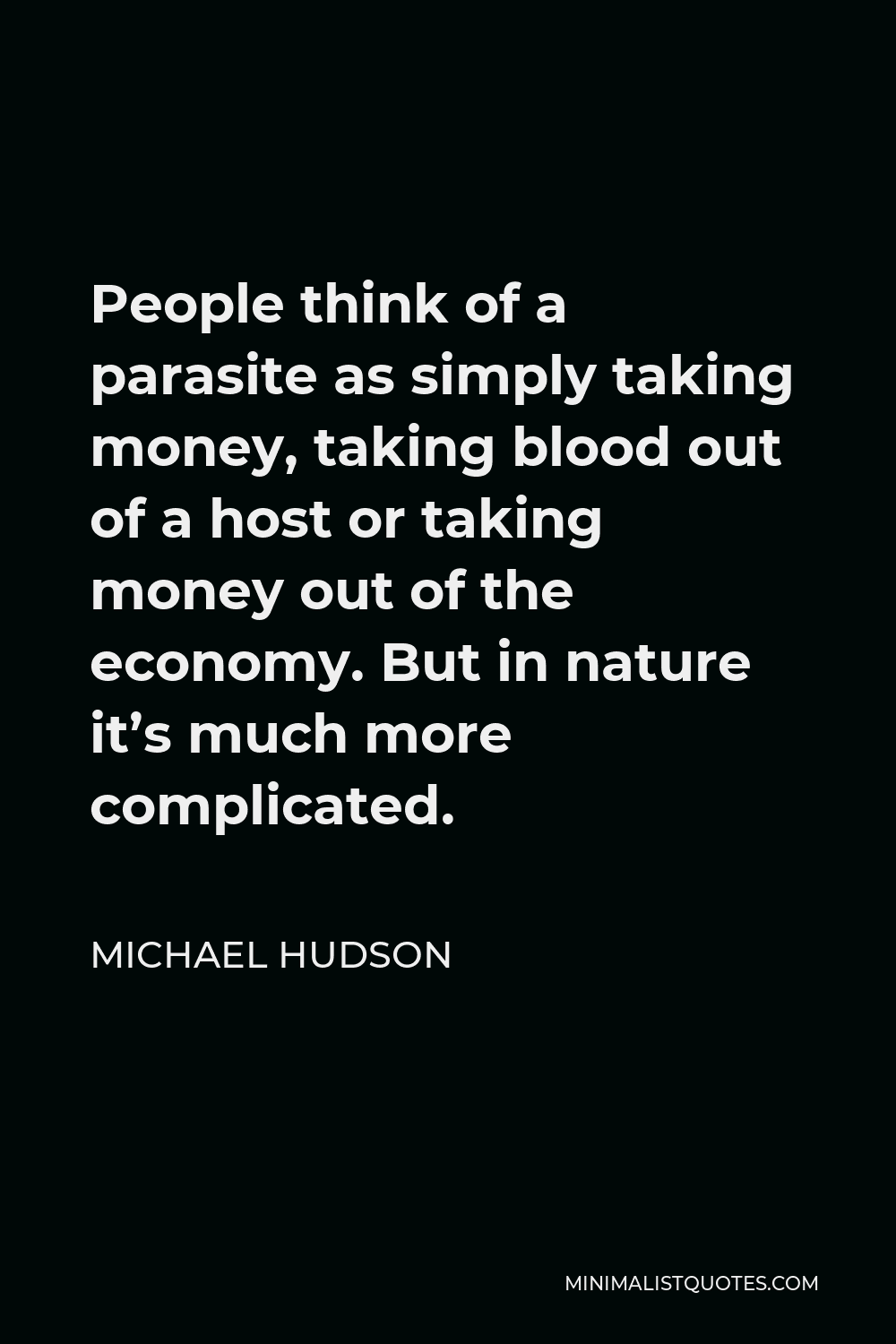
People think of a parasite as simply taking money, taking blood out of a host or taking money out of the economy. But in nature it’s much more complicated.
MICHAEL HUDSON -





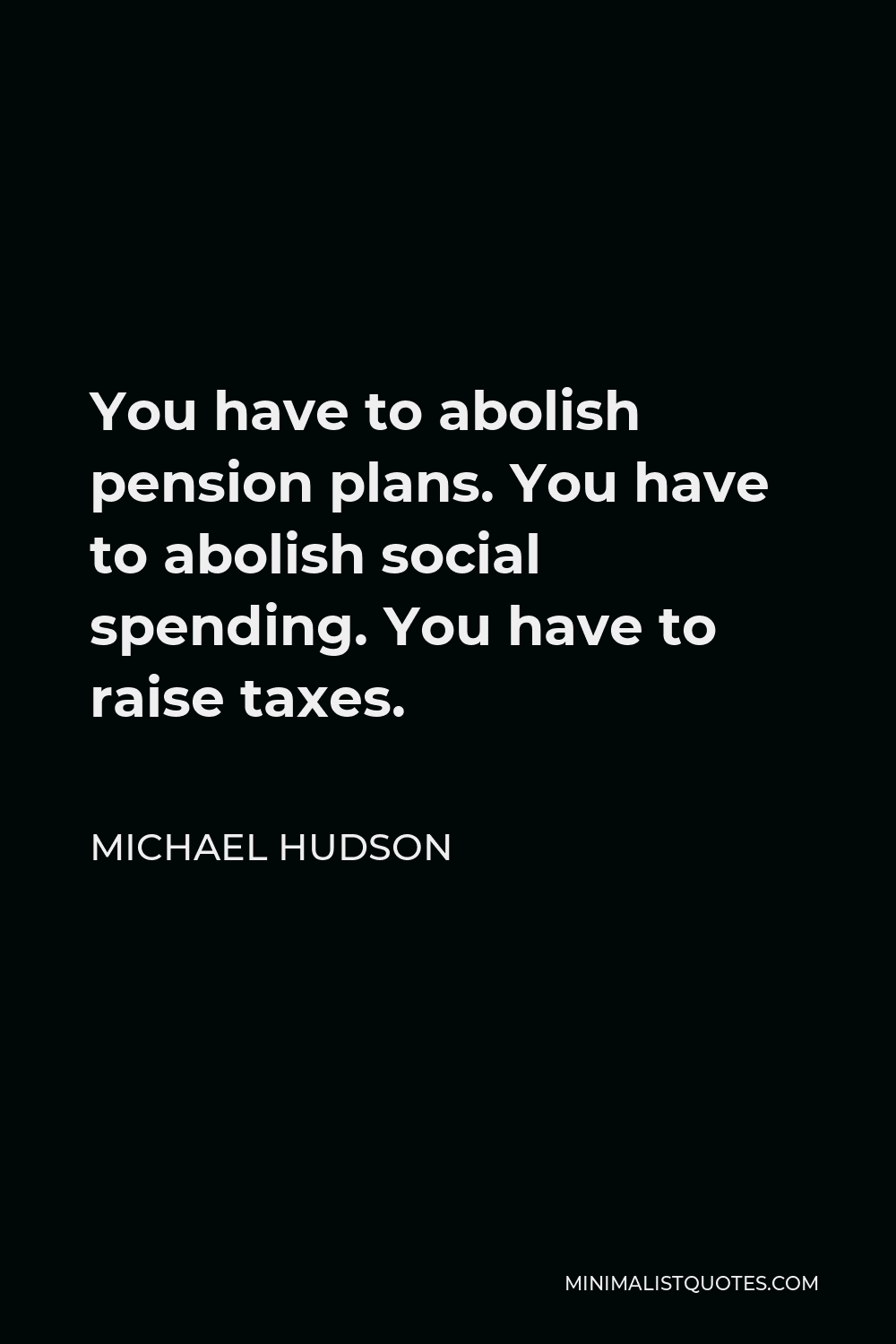
You have to abolish pension plans. You have to abolish social spending. You have to raise taxes.
MICHAEL HUDSON -





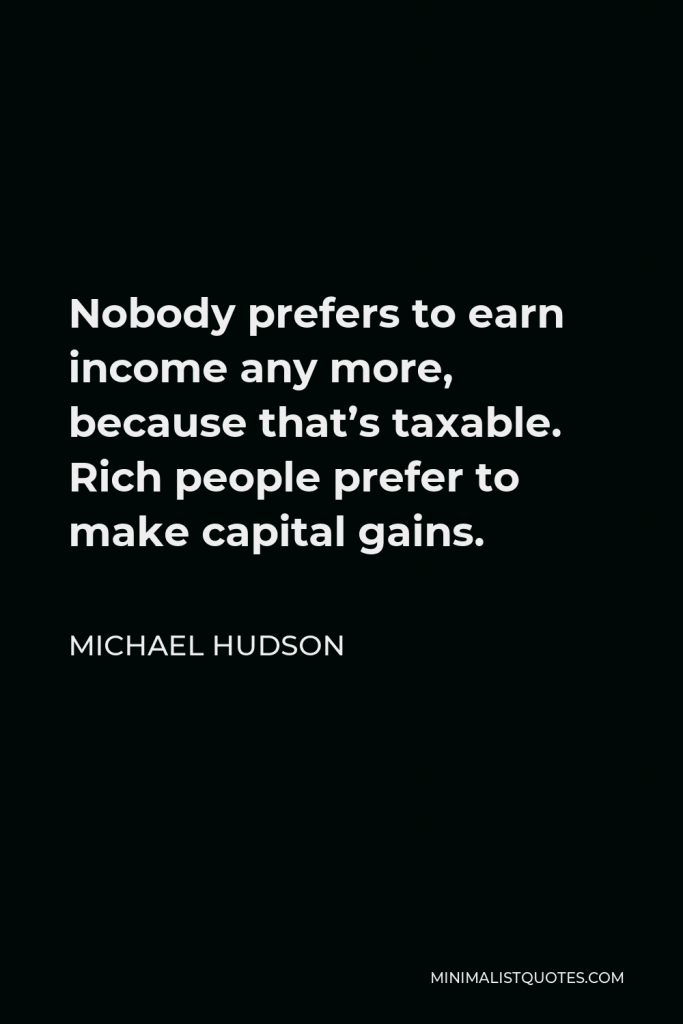

Nobody prefers to earn income any more, because that’s taxable. Rich people prefer to make capital gains.
MICHAEL HUDSON -





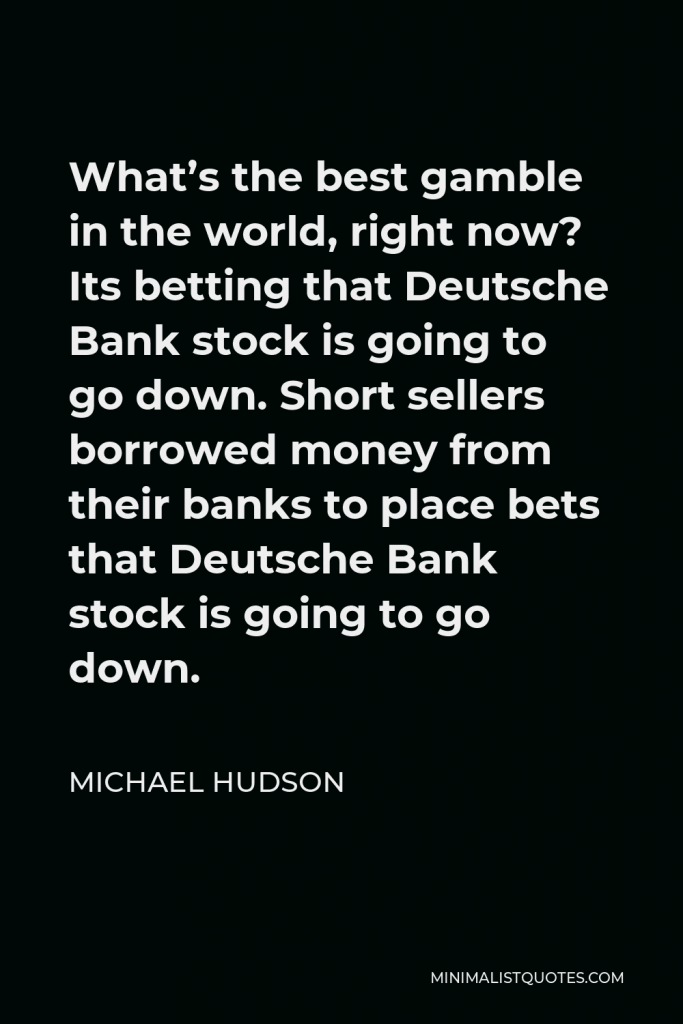

What’s the best gamble in the world, right now? Its betting that Deutsche Bank stock is going to go down. Short sellers borrowed money from their banks to place bets that Deutsche Bank stock is going to go down.
MICHAEL HUDSON -





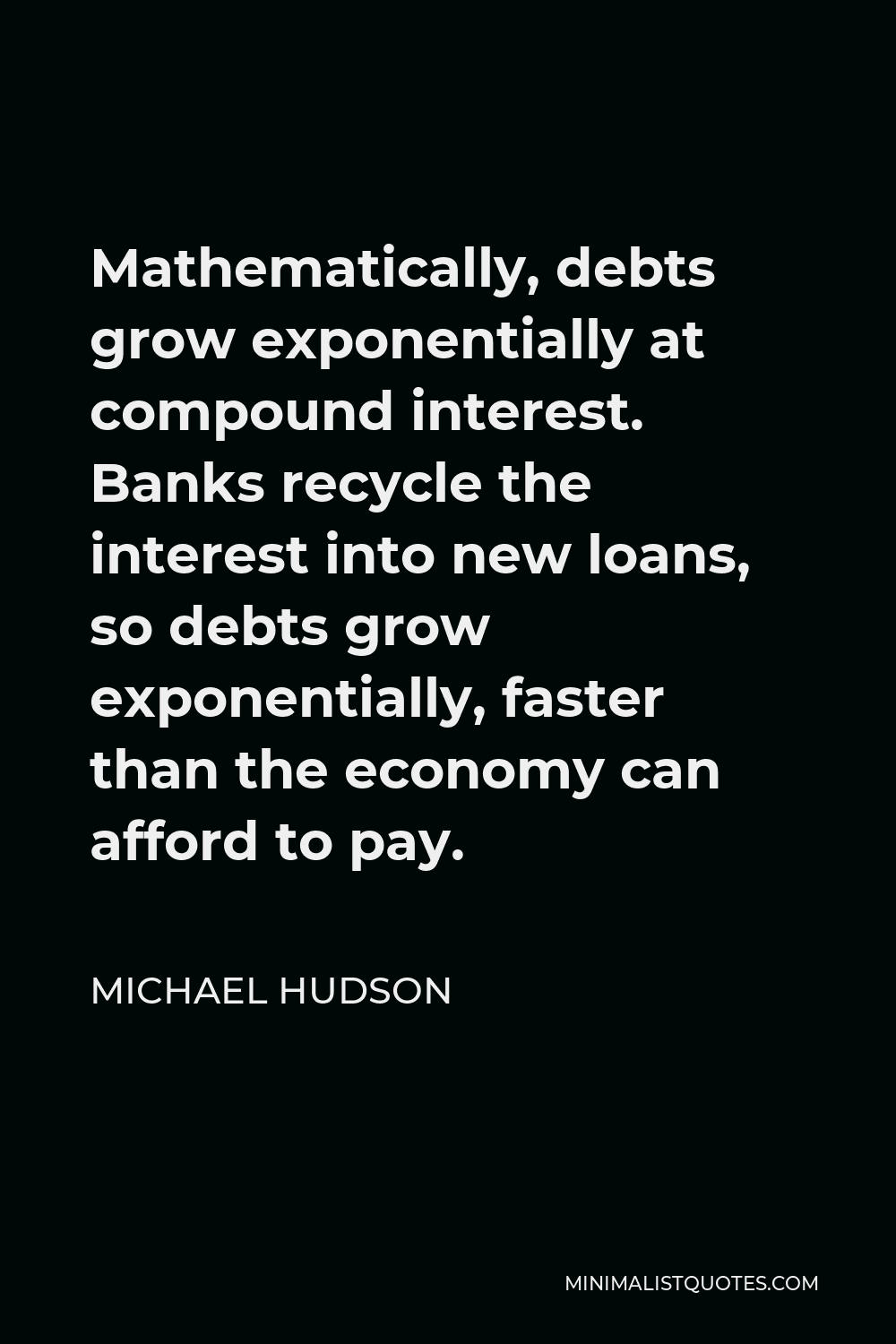
Mathematically, debts grow exponentially at compound interest. Banks recycle the interest into new loans, so debts grow exponentially, faster than the economy can afford to pay.
MICHAEL HUDSON -





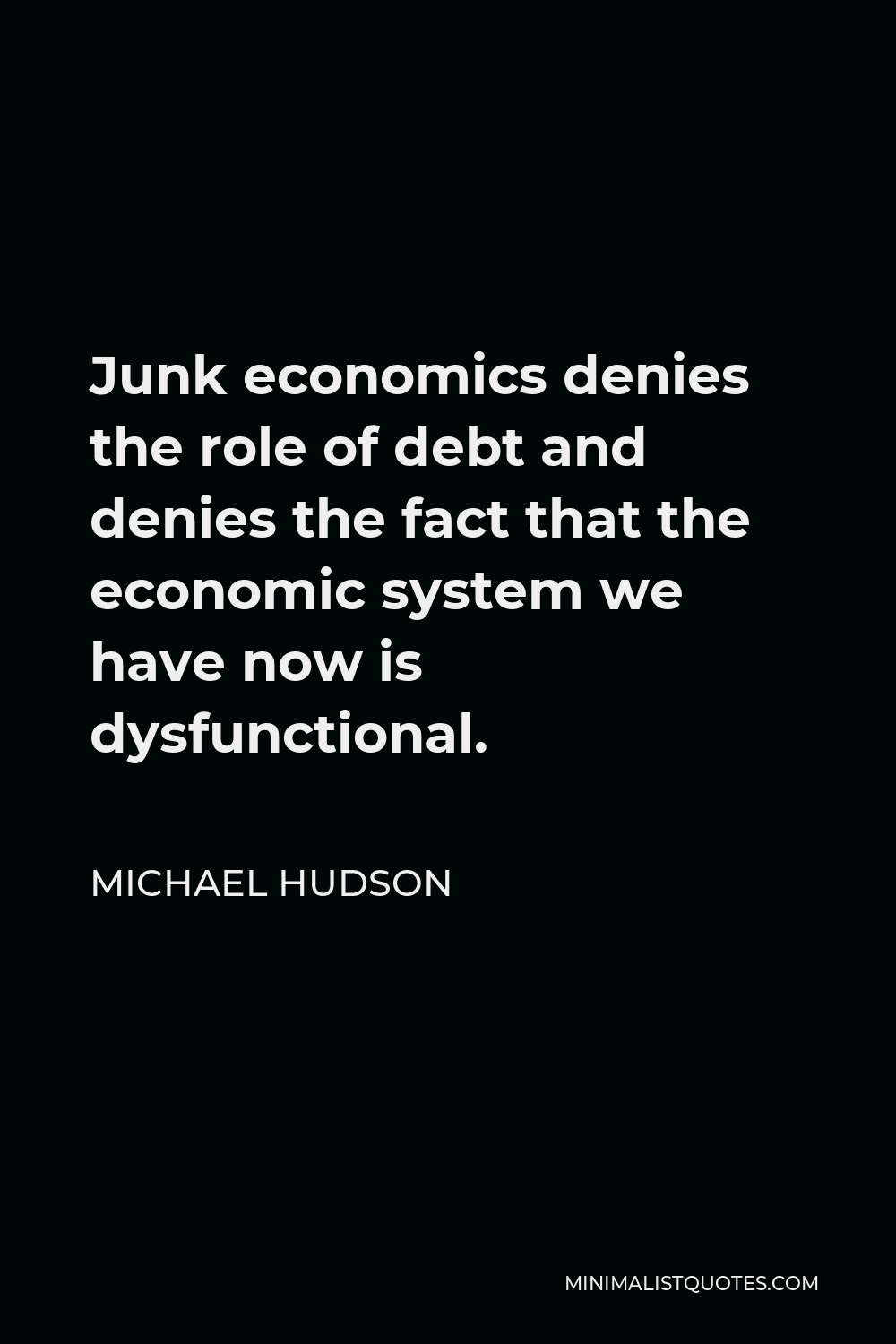
Junk economics denies the role of debt and denies the fact that the economic system we have now is dysfunctional.
MICHAEL HUDSON -





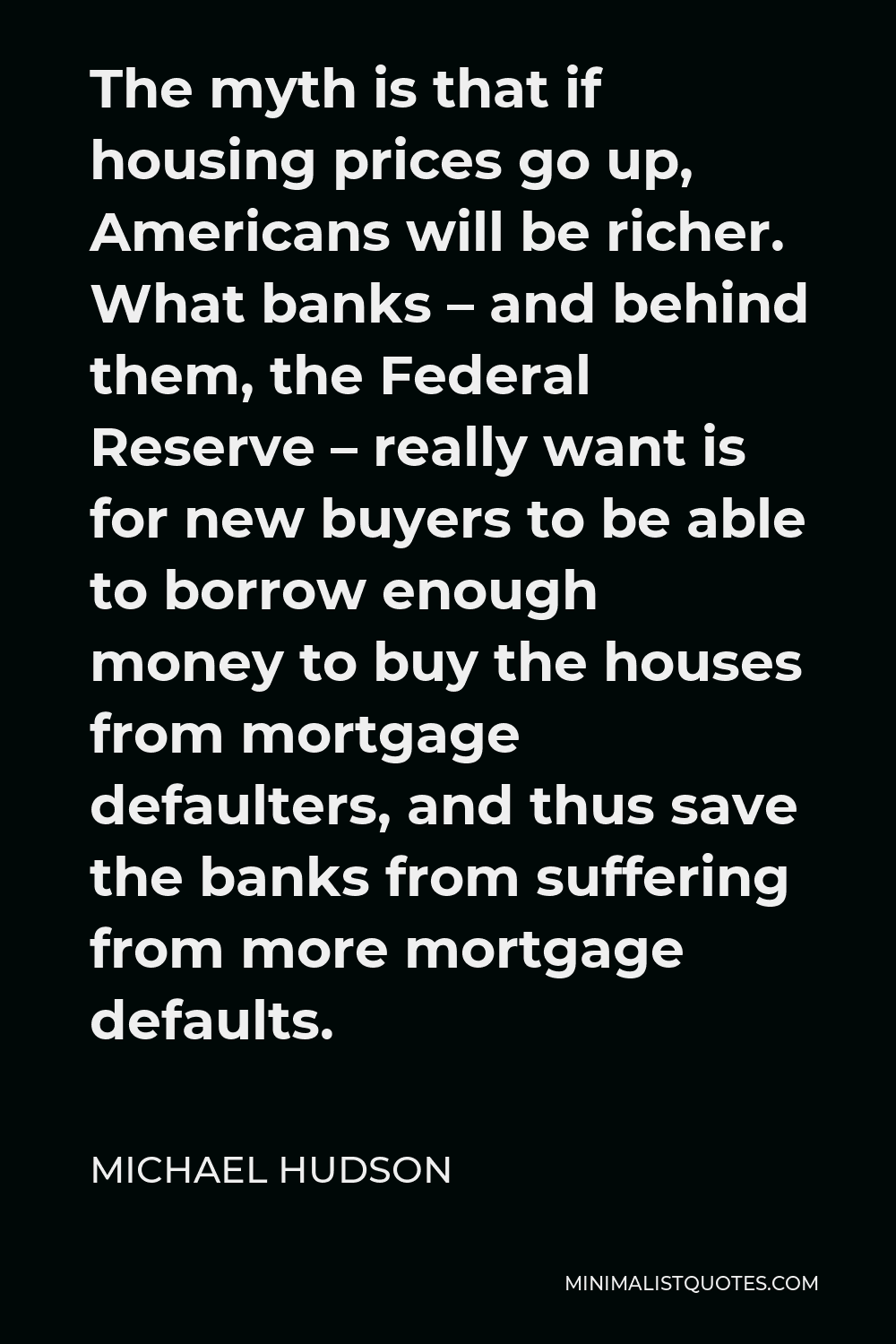
The myth is that if housing prices go up, Americans will be richer. What banks – and behind them, the Federal Reserve – really want is for new buyers to be able to borrow enough money to buy the houses from mortgage defaulters, and thus save the banks from suffering from more mortgage defaults.
MICHAEL HUDSON -





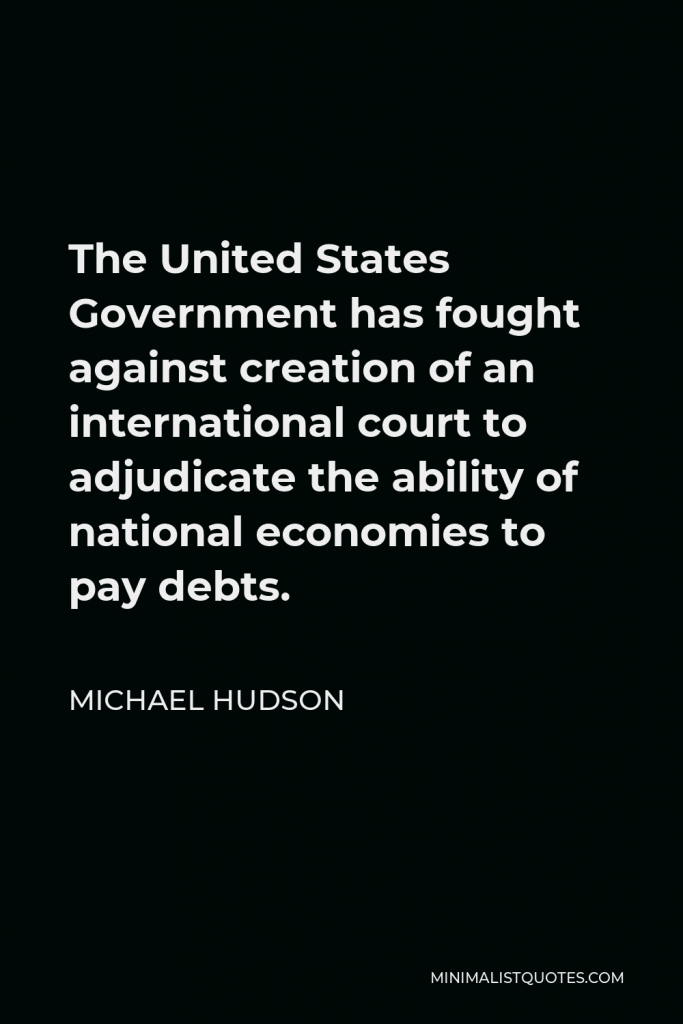

The United States Government has fought against creation of an international court to adjudicate the ability of national economies to pay debts.
MICHAEL HUDSON
